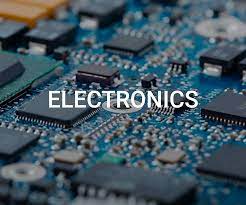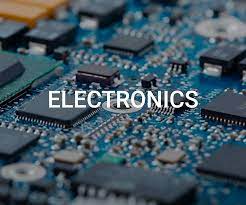
A trade organization representing electronics makers said on Thursday that it has grown more difficult to recruit skilled personnel, aggravating issues caused by an ongoing chip scarcity and creating product delays.
IPC, which represents contract manufacturers such as Foxconn, chipmakers such as Intel Corp, circuit board makers, and other industry participants, reported that almost 80% of respondents in its most recent poll had difficulty hiring labour. Moreover two-thirds of the firms polled indicated their personnel expenses were growing as well.
The workforce problems come at a time when the sector is also struggling with a global chip scarcity, which began last year. More than half of respondents indicated they did not expect the chip scarcity to end until at least the second half of 2022, and 90% said their total materials prices, which included non-chip goods, were growing.
According to the poll, the outcome was increasing delays and diminishing profit margins. Less than a quarter of the firms polled indicated their earnings were increasing, with almost a third expecting margins to contract. In addition, 88 per cent of businesses said that their lead times - the time it takes between receiving an order and completing it - were increasing which occasions were as delayed as by two months.
According to Shawn DuBravac, chief economist at IPC and the study's main researcher, labour shortages are severe in North America and Europe, and electronics makers will likely have to go beyond boosting pay, which 44 percent indicated they were doing, to recruit workers. More than a third of businesses reported offering more flexible hours or more training and education.
"That becomes an important thing in manufacturing sectors. It won't be just higher wages. It will also be, 'We're going to train you. If there are other education aspirations that you have, we'll work to help you with that,'" DuBravac said
(Source:www.londonnewstime.com)
IPC, which represents contract manufacturers such as Foxconn, chipmakers such as Intel Corp, circuit board makers, and other industry participants, reported that almost 80% of respondents in its most recent poll had difficulty hiring labour. Moreover two-thirds of the firms polled indicated their personnel expenses were growing as well.
The workforce problems come at a time when the sector is also struggling with a global chip scarcity, which began last year. More than half of respondents indicated they did not expect the chip scarcity to end until at least the second half of 2022, and 90% said their total materials prices, which included non-chip goods, were growing.
According to the poll, the outcome was increasing delays and diminishing profit margins. Less than a quarter of the firms polled indicated their earnings were increasing, with almost a third expecting margins to contract. In addition, 88 per cent of businesses said that their lead times - the time it takes between receiving an order and completing it - were increasing which occasions were as delayed as by two months.
According to Shawn DuBravac, chief economist at IPC and the study's main researcher, labour shortages are severe in North America and Europe, and electronics makers will likely have to go beyond boosting pay, which 44 percent indicated they were doing, to recruit workers. More than a third of businesses reported offering more flexible hours or more training and education.
"That becomes an important thing in manufacturing sectors. It won't be just higher wages. It will also be, 'We're going to train you. If there are other education aspirations that you have, we'll work to help you with that,'" DuBravac said
(Source:www.londonnewstime.com)





